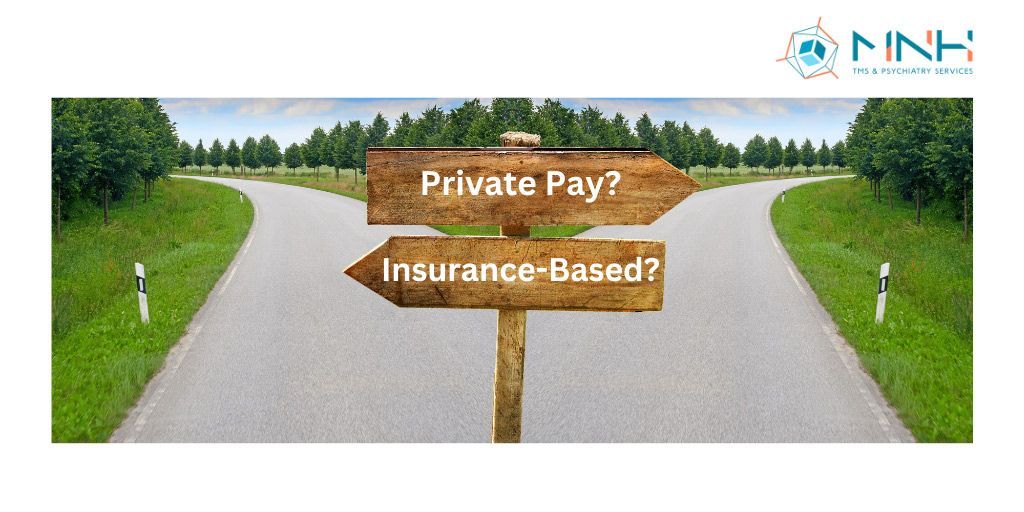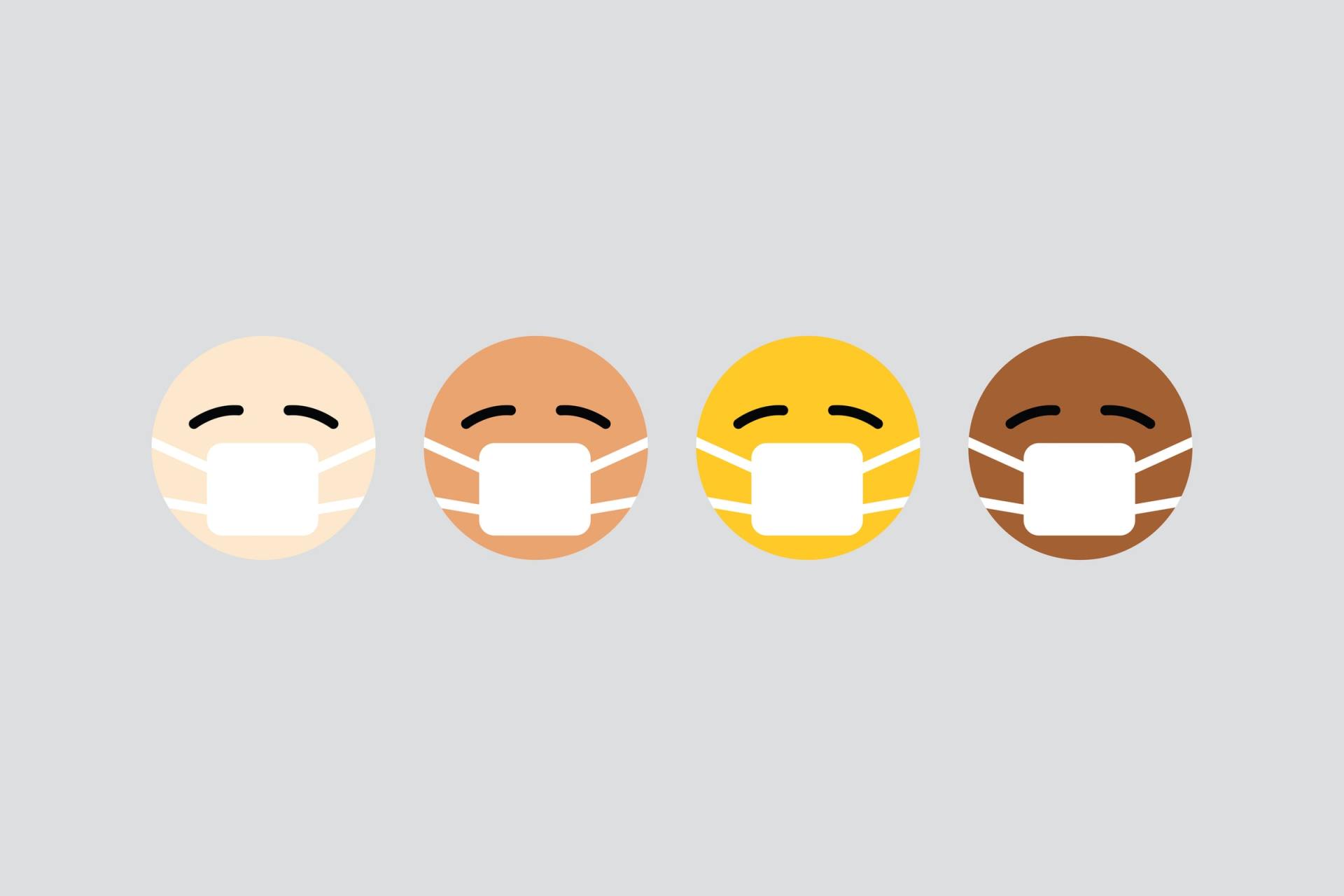Private Practice vs Insurance-Based Practice Can I Take Insurance and Private Pay?
How can I sustain my private cash-pay practice while still enabling patients to access insurance for otherwise unaffordable treatment services?
Nowadays, medical professionals and other healthcare providers are increasingly choosing to adopt cash-based practices, primarily to avoid dealing with all the hassles of insurance. However, this decision often poses difficulties as most patients find the cash pay services offered to be unaffordable, especially treatments like TMS therapy and Spravato. Therefore, it is crucial for providers to comprehend the intricacies of managing such situations to ensure their patients have access to treatment without losing the patient.
As the owner of a clinic, it is crucial for you to determine whether you will opt for accepting healthcare insurance or if you prefer your services to be cash-based, where the patient pays a fixed rate for each session. Both payment options have their advantages and disadvantages, so your decision should align with the goals you have set for your clinic. It is important to note that there are some limitations on transitioning from accepting healthcare insurance to offering cash-based services at a later stage.
Cash-based practices have become more prevalent in recent years due to providers' frustration with having to adhere to insurance regulations. Additionally, they are weary of insurance companies dictating patient treatment and the ongoing struggle to resolve unpaid claims. Consequently, the question arises:

How can I sustain my private cash-pay practice while still enabling patients to access insurance for otherwise unaffordable treatment services?
It is important to acknowledge that an increasing number of owners of insurance-based practices are expressing an ardent desire to transition to a cash-based practice or at least increase the number of self-pay patients they serve.
However, many of these individuals lack an understanding of the legal aspects involved in this process and the potential issues they may encounter, particularly when it comes to establishing cash-pay rates. To ensure compliance with contractual obligations and state laws, certain considerations must be evaluated. Nevertheless, this article will NOT delve into the topic of converting an insurance-based practice to a private cash pay practice. Instead, our focus will be on maintaining your existing private cash pay practice while also having the ability to bill insurance for more expensive treatments.
The following areas must be considered: the legal entity, Medicare status, and knowing the network’s contractual rules.
What legal entity are you conducting business under?
If you are credentialed with insurance through your employer and decide to start your own private practice, such as a TMS therapy and Spravato clinic that operates on a cash-only basis, you can exclusively accept cash payments without concerns about the insurance companies you are affiliated with. This is because your insurance credentials are tied solely to your employer's entity. When you become credentialed with insurance, you are not only recognized as an individual provider but also linked to a group NPI number. This group NPI pertains to the legal entity. However, the ability to bill insurance is limited to the specific entity and does not transfer with you if you decide to practice independently.
If you were to transition to a different employer, they would need to recredential you under their group NPI and "legal entity." While the insurance company is already familiar with you and the process may be expedited the second time around, it is still necessary for you to undergo credentialing with the new employer to submit insurance claims through them.
I understand that this may seem complex. Healthcare in this country is unnecessarily convoluted by insurance companies, but that is a separate matter for another discussion. The important thing for you to grasp is the following:
If you aspire to establish your own specialized cash based business, you have the option to exclusively accept cash payments, regardless of whether you are affiliated with an insurance provider or not, as long as you operate under a distinct group NPI (your employer) with the insurance networks. This is feasible because you will be operating as a separate legal entity, specifically your own LLC for your cash-based practice.
When you are working as a separate “legal entity” it is irrelevant whether you are credentialed and in network under your employer. You are functioning as an entirely distinct entity that you own, which is not contracted with insurance, despite your personal credentialing under your employer.
Medicare Status
Please be advised that this information does not pertain to Medicare. There are other rules and regulations that must be followed for accepting cash payments while being enrolled in Medicare. While we will not discuss these regulations in this article, you may visit the CMS website for further clarification on how this applies to Medicare. But here are just a couple of things you should know.
There has been extensive deliberation regarding the implementation of cash practice and treating Medicare patients. It is imperative to understand that if you are still an enrolled provider with Medicare, you are not permitted to charge a Medicare patient cash for a covered service. This matter is straightforward and leaves no room for debate, as the regulations governing this issue are unambiguous.
Healthcare providers who treat Medicare patients but choose not to participate in the Medicare program are required to formally opt-out of Medicare. Consequently, both the provider and their Medicare patients are unable to submit claims to Medicare for reimbursement, resulting in Medicare patients having to pay for services directly.
Payer Networks Contractual Rules
However, it is acceptable to see cash patients in a practice that is credentialed with insurance. There are two approaches to consider:
- Charge cash for services that are not covered by insurance, like IV ketamine infusions for the treatment of depression, while still billing for covered services. However, you will want to be sure the service is not covered by insurance. There are a couple of networks that are now covering IV ketamine for the treatment of depression.
- Establish a separate legal entity to manage the “cash portion” of your practice.
It is important to exercise caution when billing patients for services that are considered “non-covered”. It is crucial to VERIFY that the service is truly a non-covered service or treatment with the insurance. Contacting the insurance company via phone is the best way to obtain this information, as well as applying logical reasoning. It is always a good idea to get the information in writing as well. For instance, most insurance networks do not include ketamine infusions in their coverage for depression treatment, but it is advisable to conduct thorough research before finalizing such decisions.
Billing Cash for Services Rendered When Contracted with Insurance Networks
In terms of operating a separate cash practice in your current practice, this can be done by forming a separate LLC and operating that portion of your business STRICTLY through it. Is it essential to have a separate entryway for practices, distinct from the one used for insurance acceptance. If this is not possible, then you will want to ensure that visitors are fully aware that there are two completely separate businesses in the building or suite as they enter. The necessity of this depends on the specific insurance company and the terms outlined in your contract. Therefore, it is crucial to thoroughly research and understand your contractual obligations. However, it is worth noting that many providers successfully operate under this model without encountering any problems.
Numerous healthcare providers maintain a primary practice that operates on an insurance-based model, alongside a legally distinct cash pay practice within the same premises, often in the same suite. It is crucial to ensure complete separation of all aspects, including the Electronic Medical Records (EMR). This precautionary measure is essential in the unlikely event of an audit, as it is always better to be prepared. By not billing the insurance company, you are helping them save money. However, it is important to note that this may not be a top priority for them.
If you are interested in establishing a specialized cash-based practice alongside your insurance-credentialed employment, there is no need to be concerned. It is important to remember that you will be operating under a completely distinct legal entity.
Private Pay Practice vs Insurance Based Practice
If you own a practice that accepts insurance and wish to offer cash-pay services, it is advisable to create a separate entity and ensure complete separation from your insurance-based practice.
When it comes to commercial insurance regulations for providers who have ownership in two legal entities, one being cash pay and the other contracted with insurance, the situation can be quite complex. Each insurance network has its own specific rules and regulations that physicians must follow.
Some insurance companies may mandate that the provider bills the patient’s insurance in both practices. For instance, Cigna stipulates that the provider must bill the patient’s insurance unless the provider is included in a ‘group’ contract. With a Cigna group contract, which necessitates a minimum of three providers, the provider can have a separate practice and receive cash payment for services provided in the cash-based practice. It is crucial to conduct thorough research in such cases. Contacting the insurance network and asking relevant questions is highly recommended. This proactive approach can potentially save a significant amount of money and prevent unnecessary complications.
For additional details, Metro NeuroHealth is a specialized
credentialing and
contracting firm that can provide support. They provide
consulting services, along with contracting, credentialing, rate negotiations,
specialty billing services, and various other offerings. To contact a representative, please click
HERE.
Schedule a Complimentary Consultation
1-833-TMS-HELP (867-4357)
Info@TMSStartitup.com










